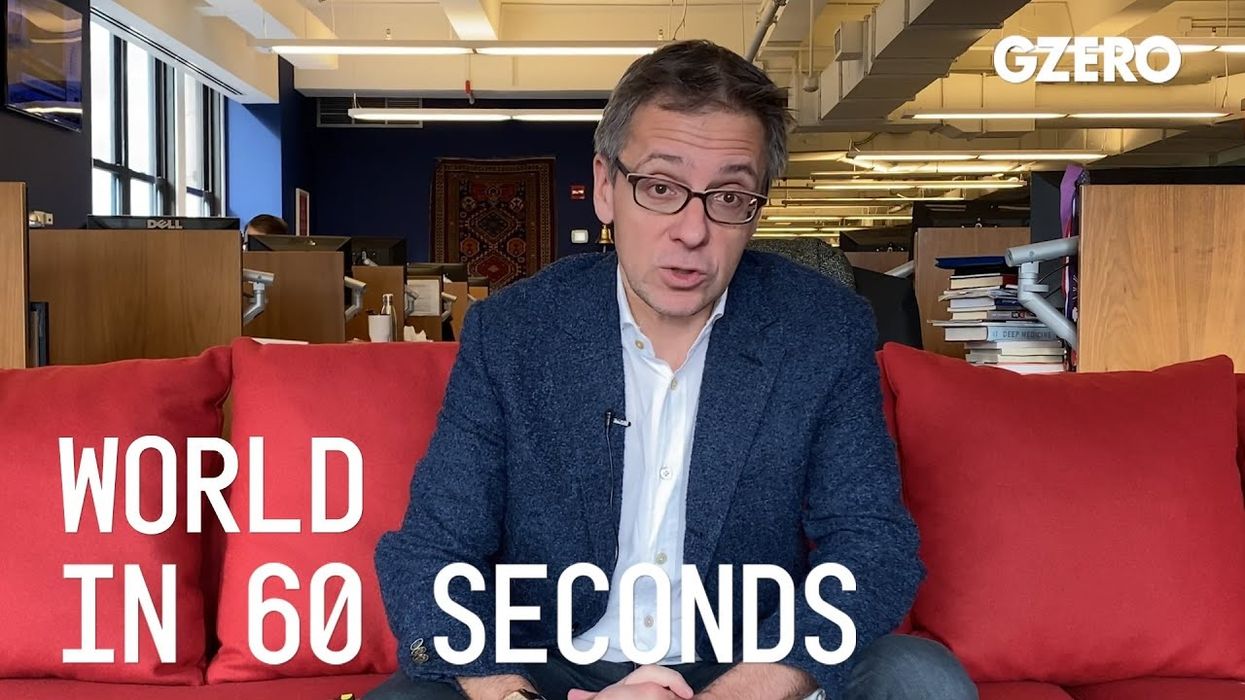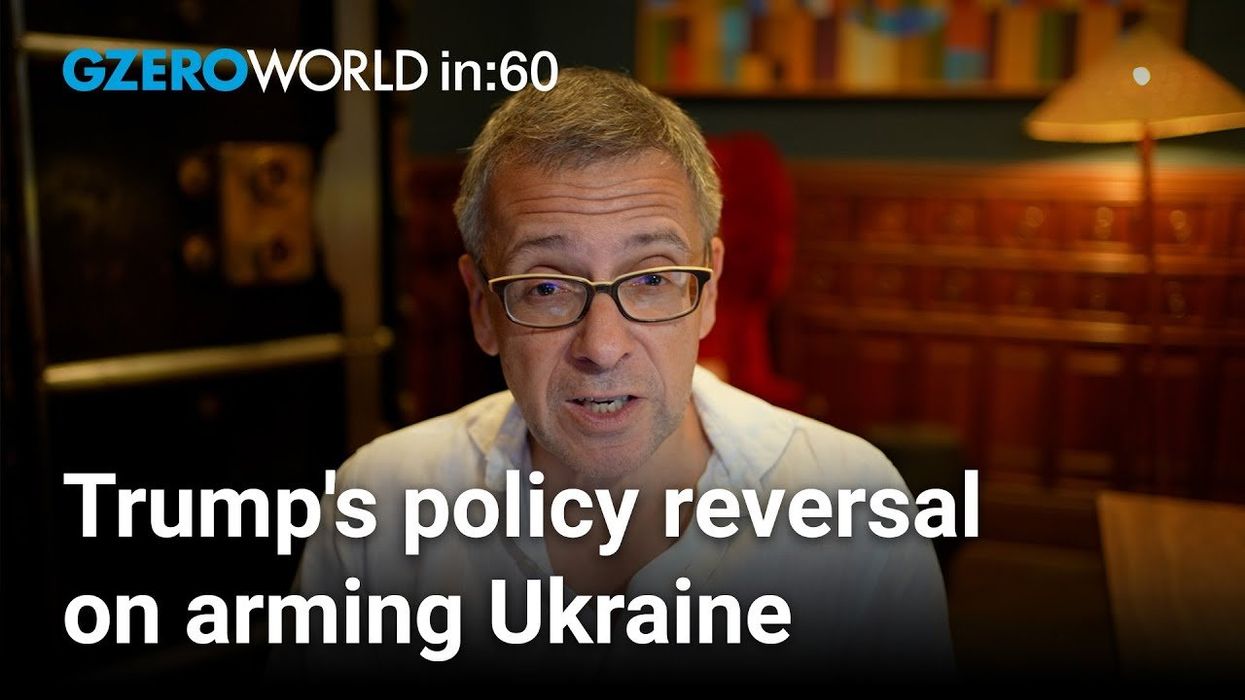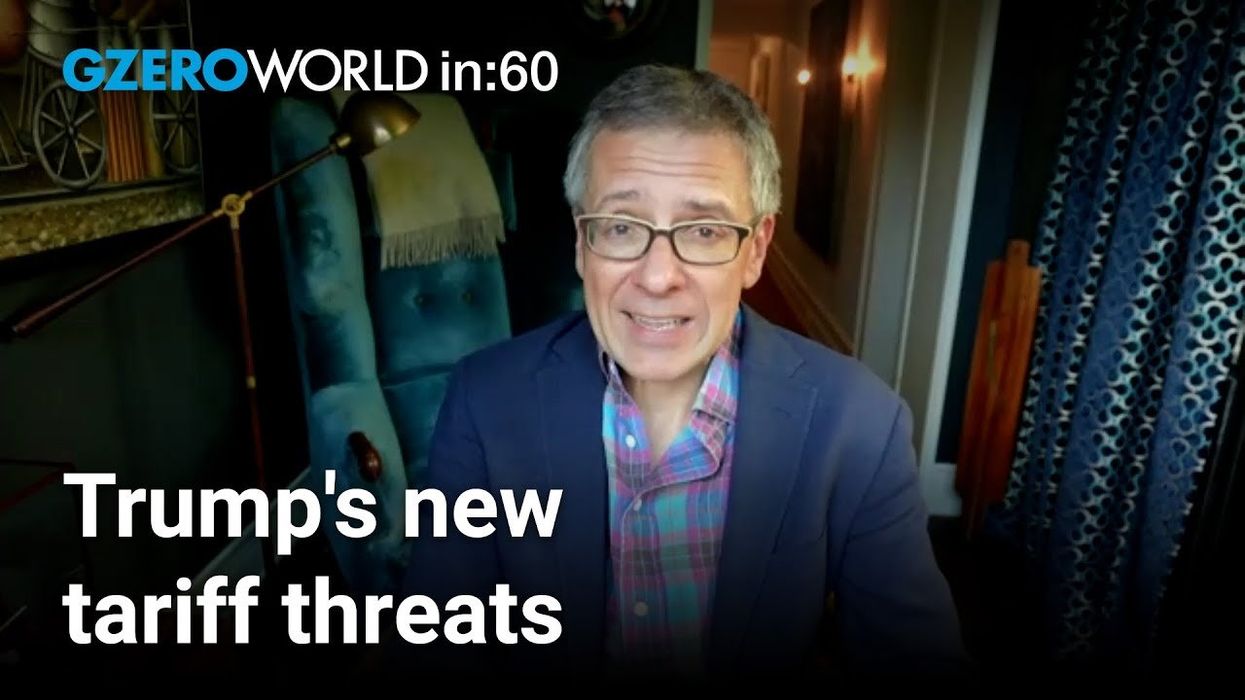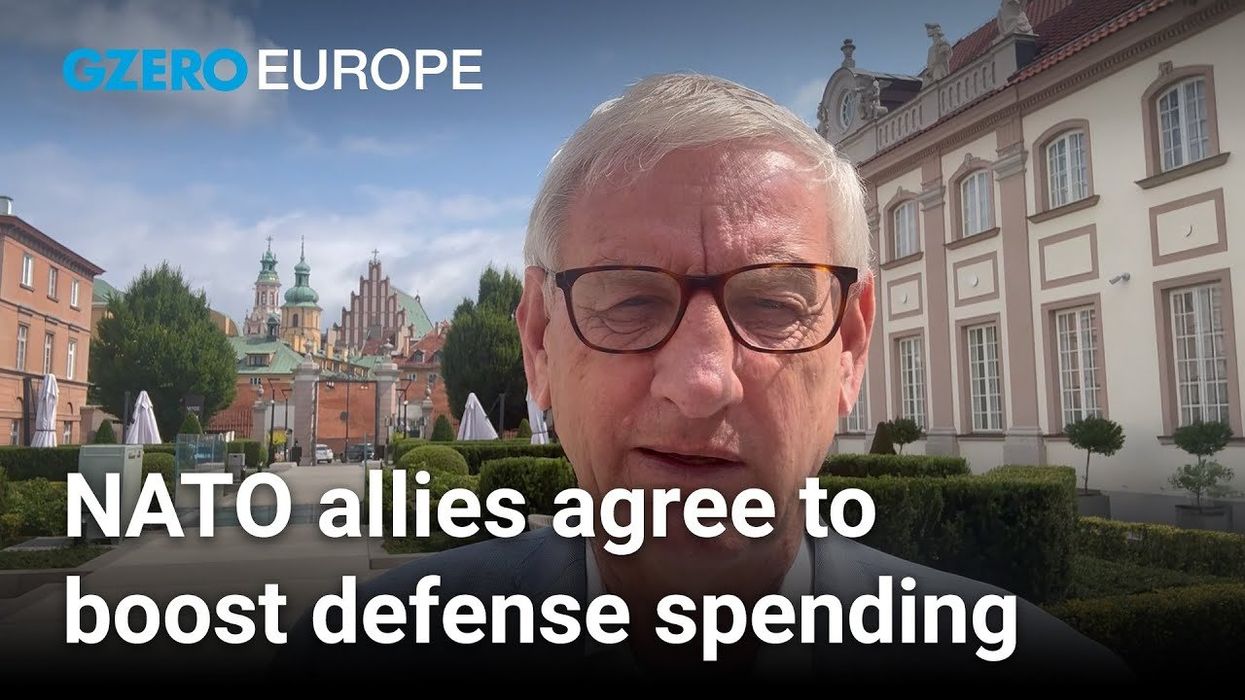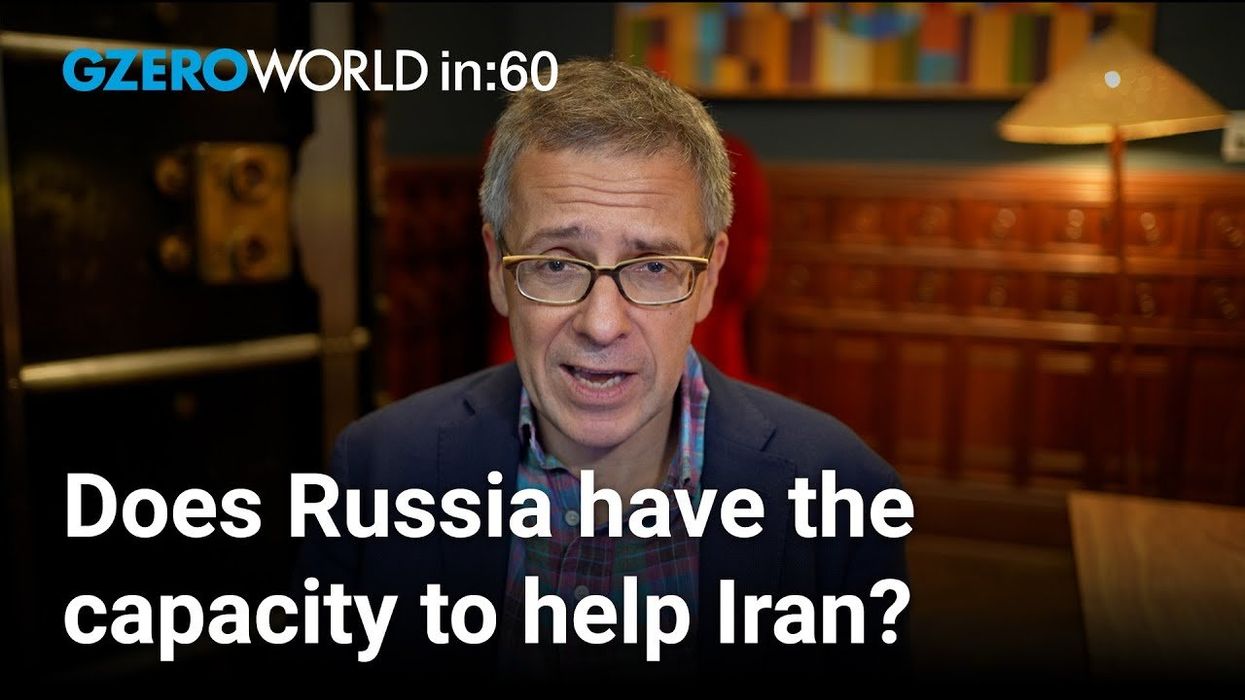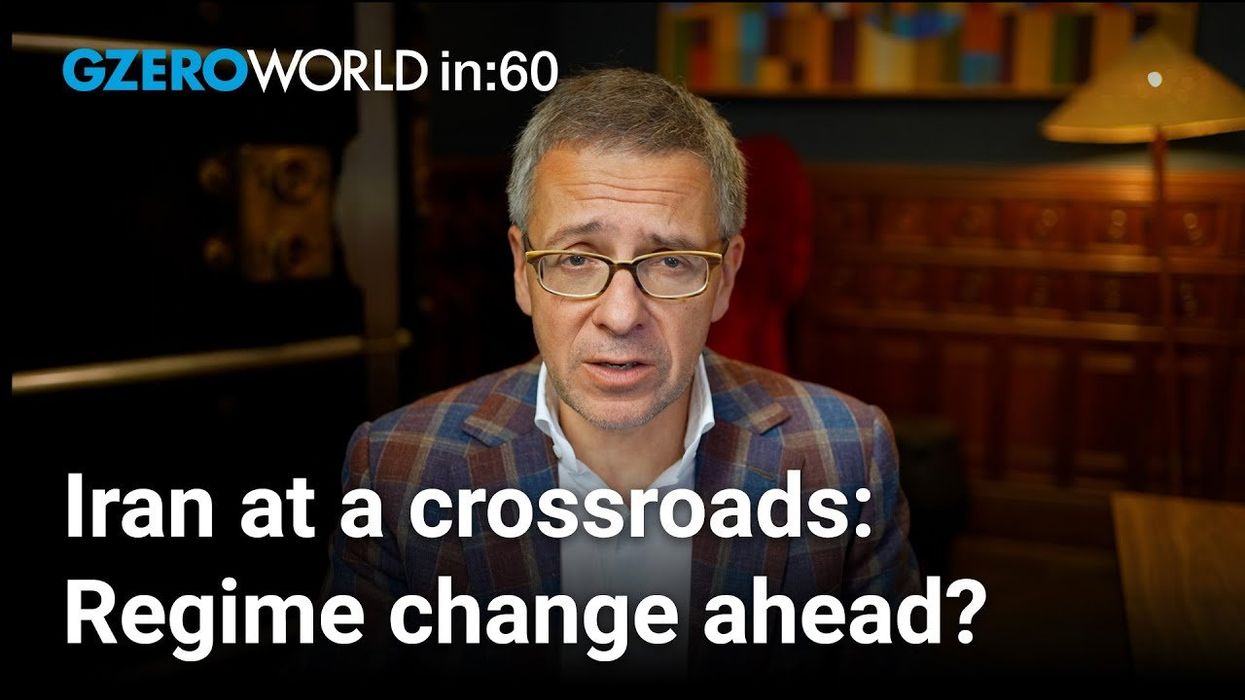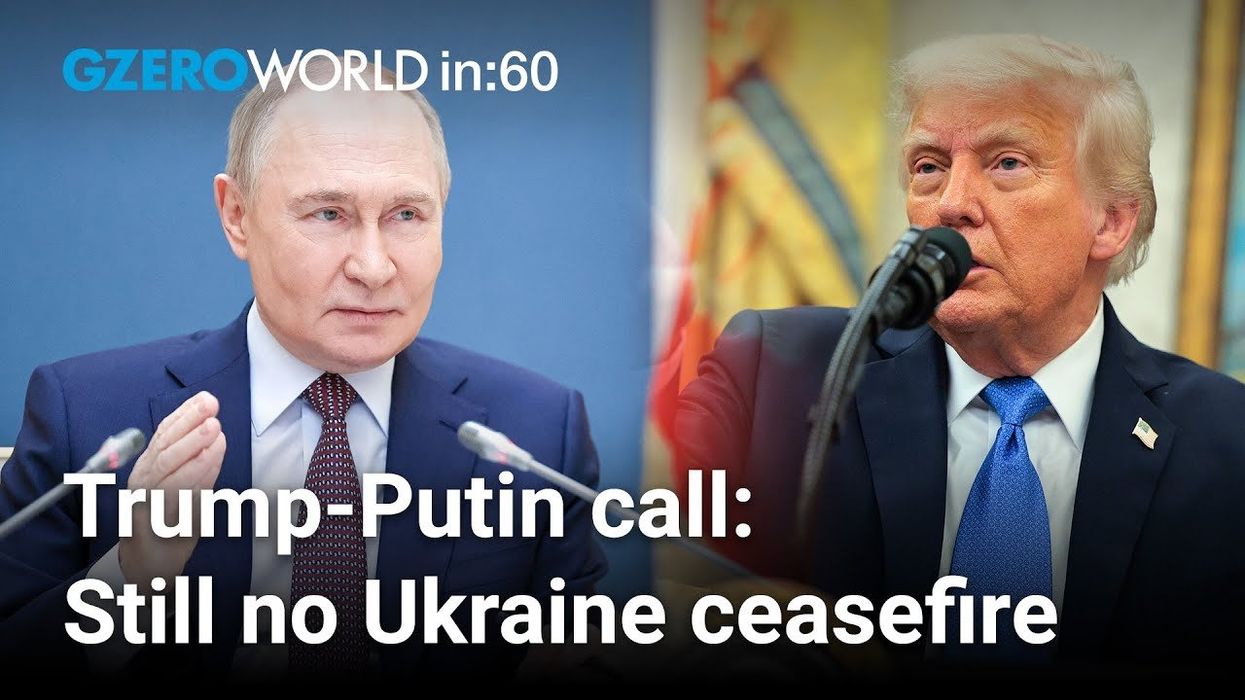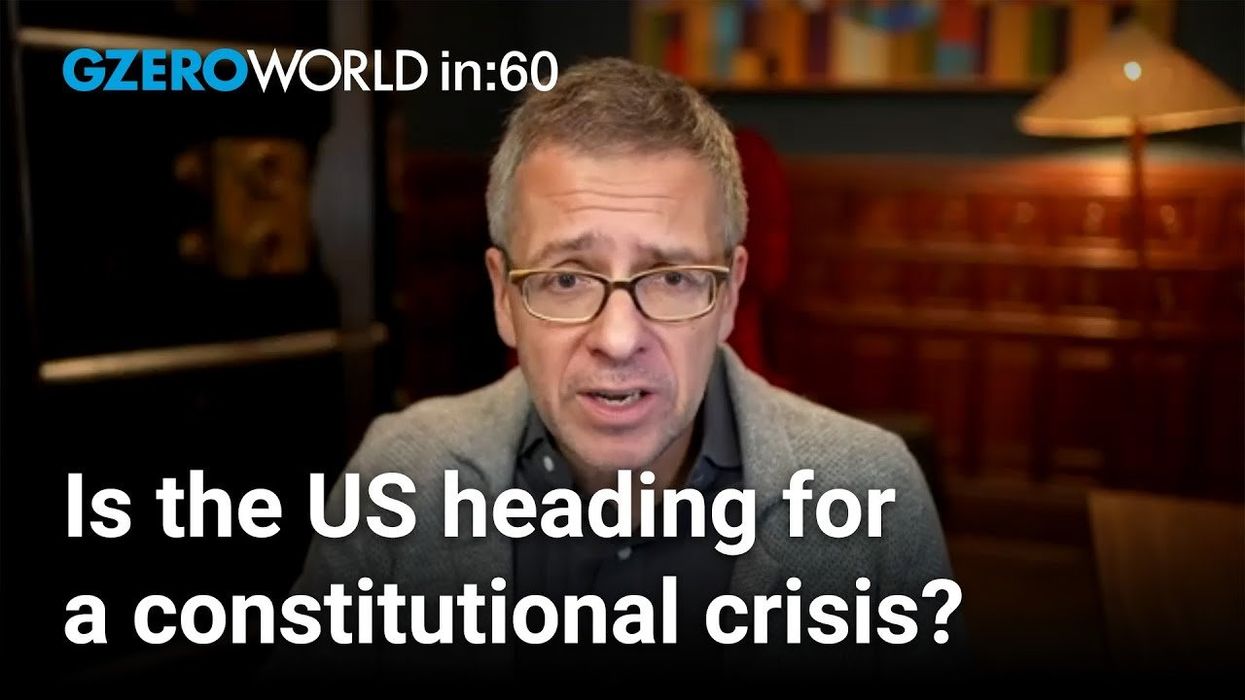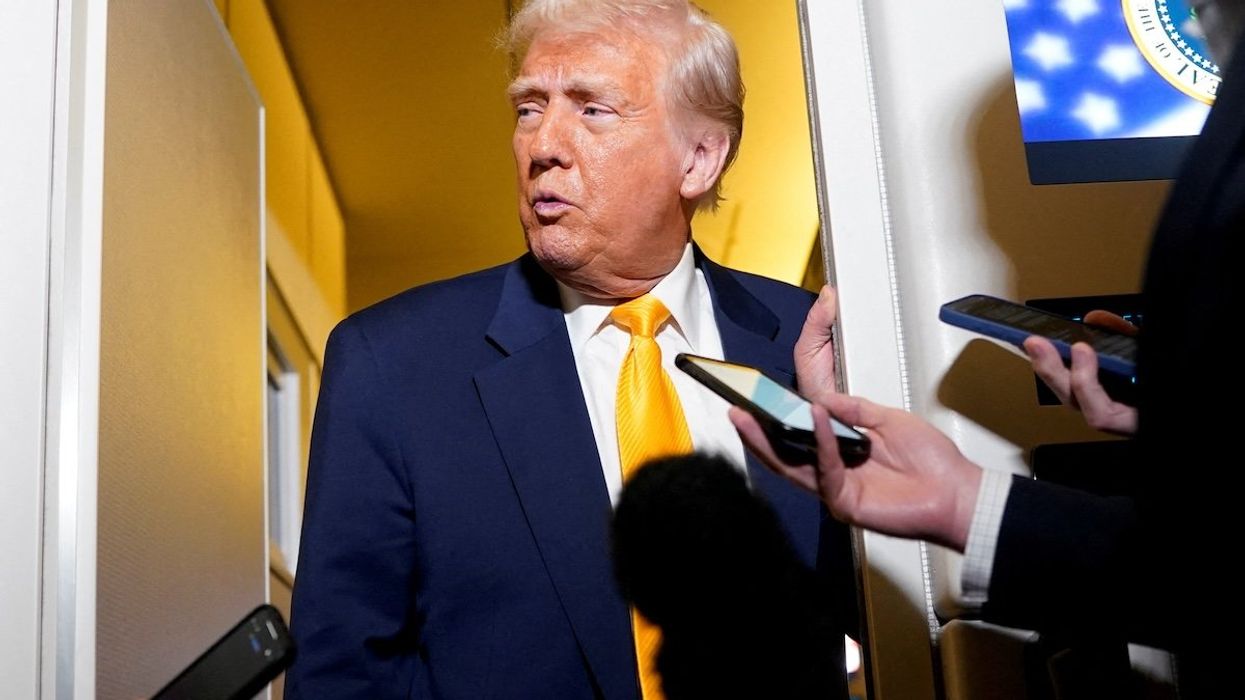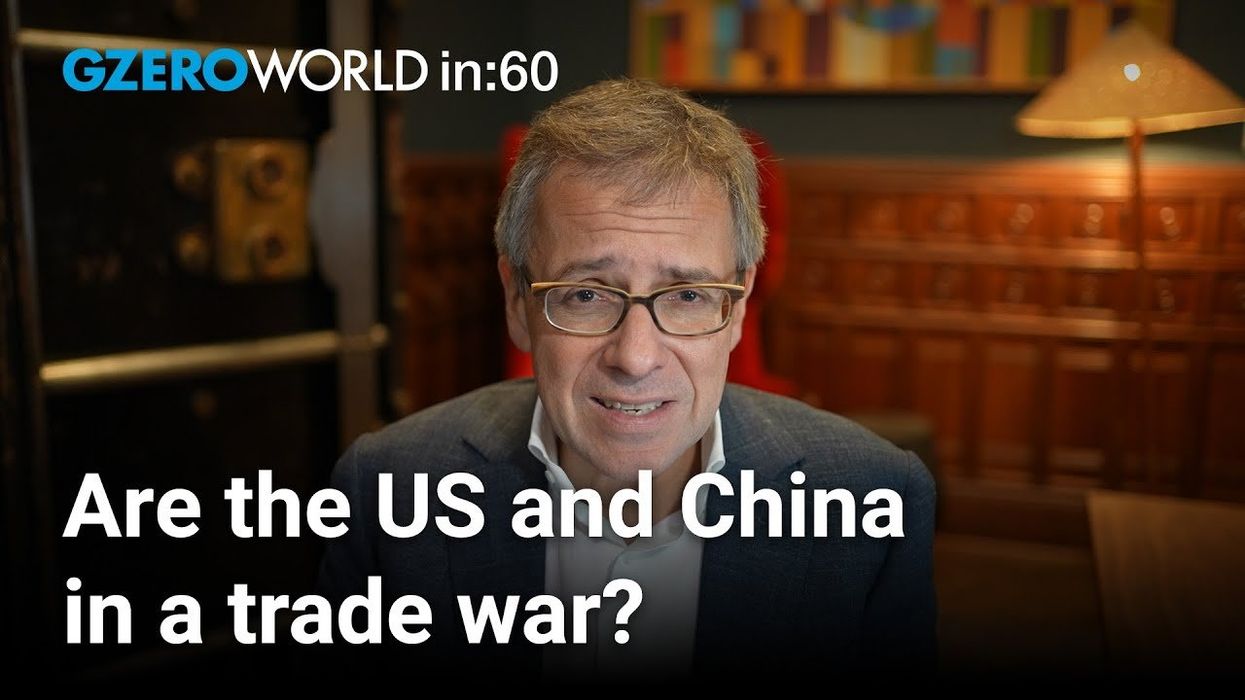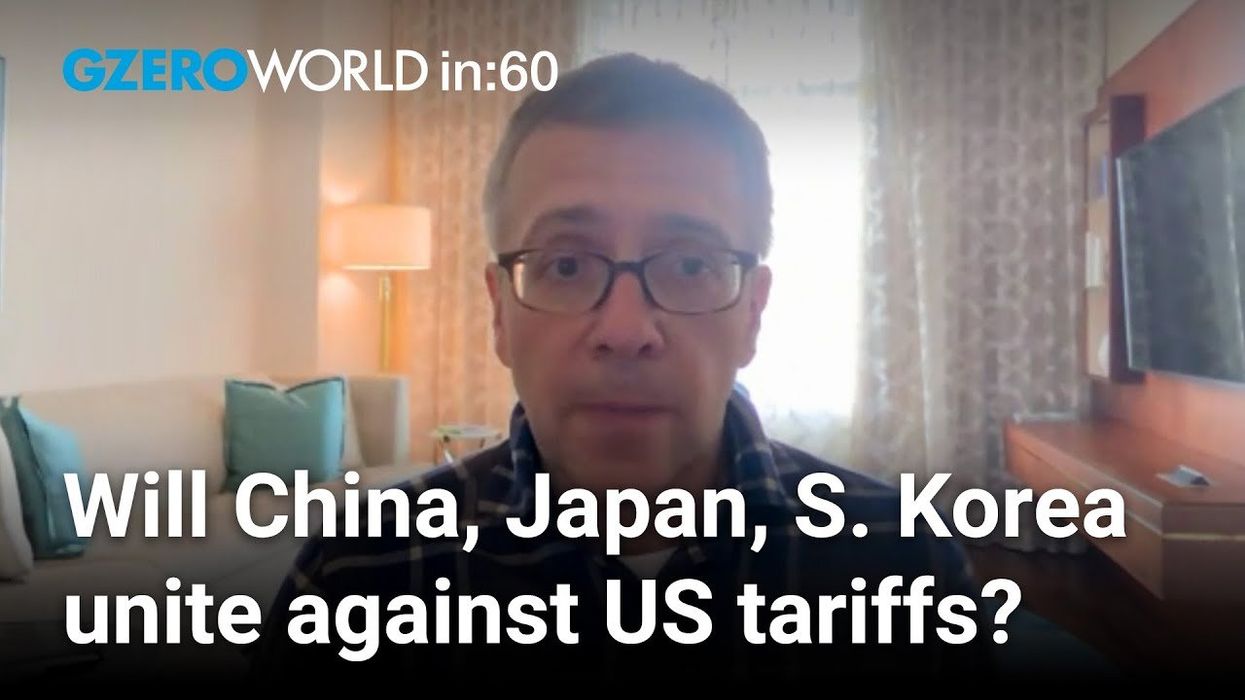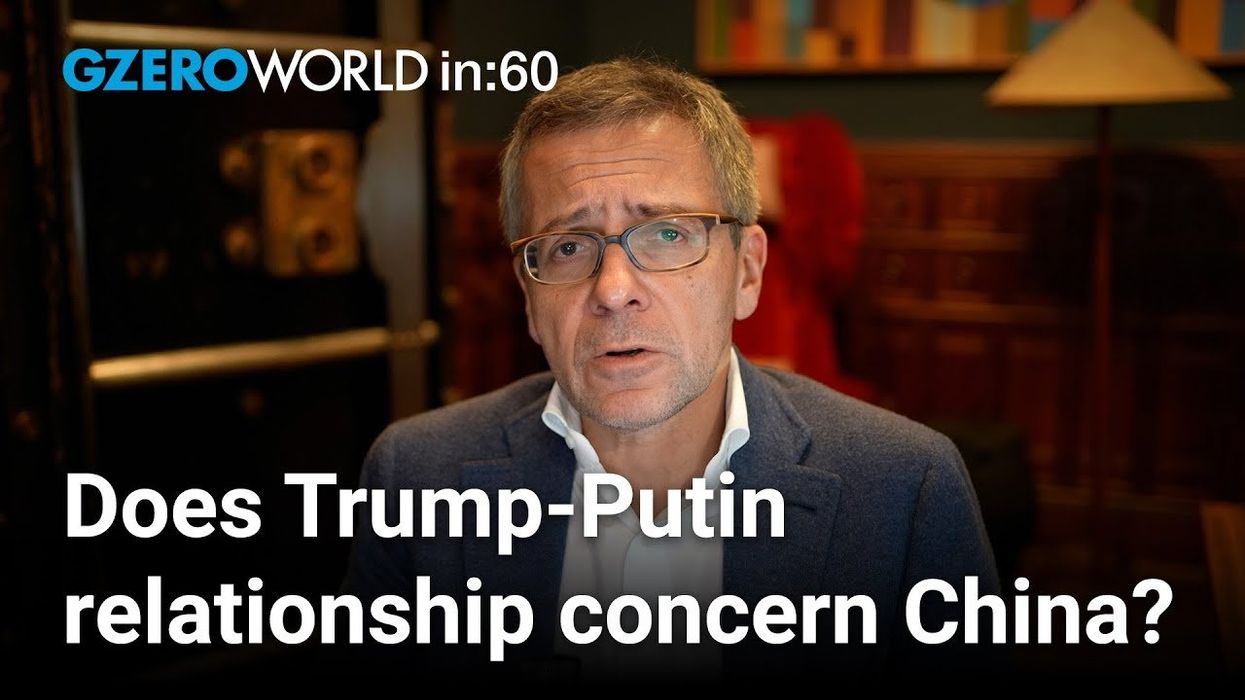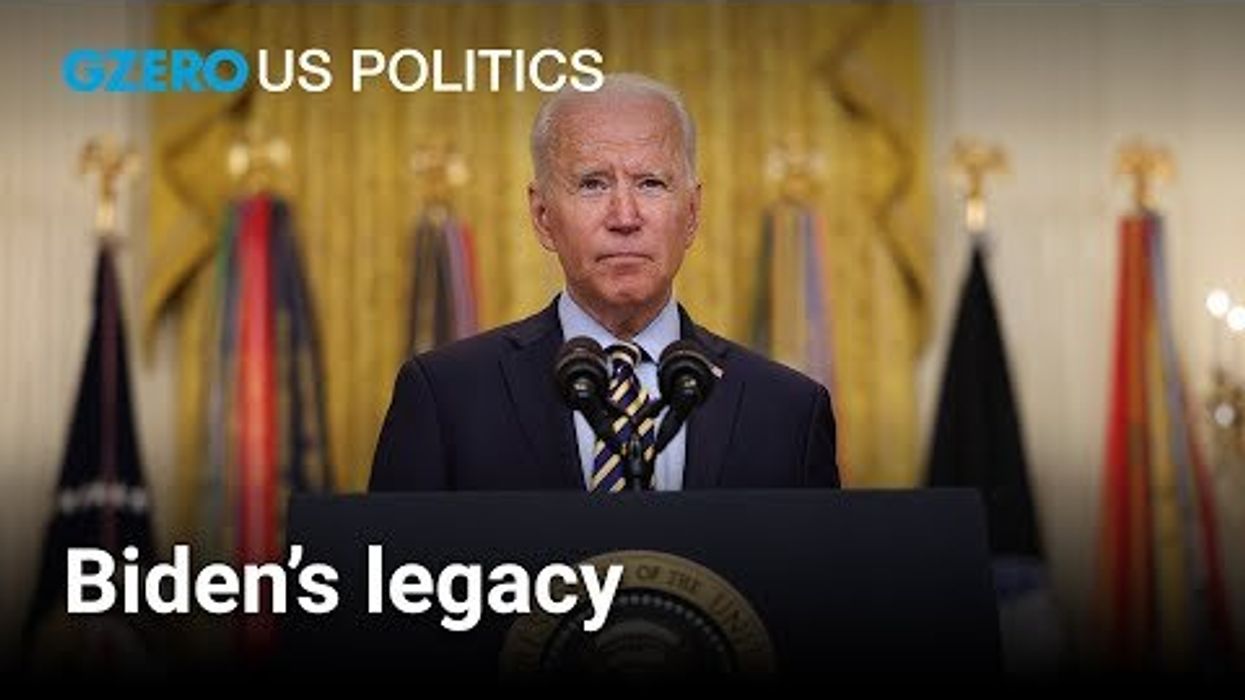VIDEOSGZERO World with Ian BremmerQuick TakePUPPET REGIMEIan ExplainsGZERO ReportsAsk IanGlobal Stage
Site Navigation
Search
Human content,
AI powered search.
Latest Stories
Sign up for GZERO Daily.
Get our latest updates and insights delivered to your inbox.
Global Stage: Live from Davos
WATCH
In 60 Seconds
Short, concise, and to the point, In 60 Seconds covers world news, US politics, the view from Europe, and more.
Presented by
It is a significant departure in American diplomacy vis-à-vis Israel and Palestine. One big reason for that is that the realities of geopolitics in the Middle East have changed. Today, Israel–Palestine is not a particularly divisive issue of high priority among most of the Arab world. When you ask them what are the things they most worry about, they say Iran, they say Al-Qaeda and ISIS, they say domestic political developments, they say Yemen and Syria and Iraq and Libya.
The position of the Palestinians on the ground is a lot weaker than it used to be. They have less territory, there's been expansion of Israeli settlements despite international outcry against it. The Israelis no longer need Palestinian labor the way they used to — they have an Iron Dome around Israel, provided with American military support, that stops the Palestinians from being able to threaten the Israelis as much with missiles coming over. They have strong surveillance that makes it really hard for the Palestinians to engage in asymmetric warfare against Israel. All of that means that the Palestinians are frankly in a much worse position today than they were five, ten or twenty years ago. Trump Administration policy reflects that.
More from In 60 Seconds
Trump-Putin-Zelensky meeting unlikely
August 19, 2025
Is Europe’s attitude towards Israel shifting?
July 29, 2025
Trump pulls US out of UNESCO, again
July 22, 2025
Trump announces new plan to arm Ukraine
July 15, 2025
Key takeaways from the 2025 NATO Summit
June 27, 2025
Are NATO allies aligned on Iran?
June 24, 2025
Will Iran’s regime survive?
June 18, 2025
Is Serbia pivoting towards Ukraine?
June 12, 2025
Ukraine drone strikes deep inside Russia
June 05, 2025
Trump-Musk rift over Trump's "big, beautiful bill"
June 04, 2025
What is Trump after in his latest Gulf states tour?
May 13, 2025
Why the US-Ukraine minerals deal is a win-win
May 01, 2025
Why Mark Carney’s victory won’t heal the US-Canada rift
April 29, 2025
Trump tariff is starting a US-China trade war
April 08, 2025
How Europe might respond to Trump's tariffs
April 03, 2025
Turkey's protests & crackdowns complicate EU relations
April 03, 2025
What if Japan & South Korea sided with China on US tariffs?
April 01, 2025
US travel warnings issued by its closest allies
March 25, 2025
Is Europe finally ready to defend itself?
March 24, 2025
US-Canada trade war helps Mark Carney's election prospects
March 11, 2025
Is the US-Europe alliance permanently damaged?
March 05, 2025
Why Trump won’t break the Putin-Xi alliance
March 04, 2025
Could Europe replace the US military?
February 25, 2025
Trump's Ukraine peace plan confuses Europe leaders
February 24, 2025
Will Trump & Musk punish Brazil over Bolsonaro indictment?
February 19, 2025
Putin trolls Europe about "the master" Trump
February 04, 2025
DeepSeek puts US-China relations on edge
January 30, 2025
EU rolls back Syria sanctions for economic rebound
January 29, 2025
At Davos, all eyes are on Trump
January 23, 2025
How Biden’s presidency will be remembered
January 18, 2025
Three reasons why Trump wants Greenland
January 17, 2025
Why NATO launches a Baltic Sea operation
January 15, 2025
Gaza ceasefire likely as Biden and Trump both push
January 14, 2025
Meta scraps fact-checking program: What next?
January 07, 2025
GZERO Series
GZERO Daily: our free newsletter about global politics
Keep up with what’s going on around the world - and why it matters.
